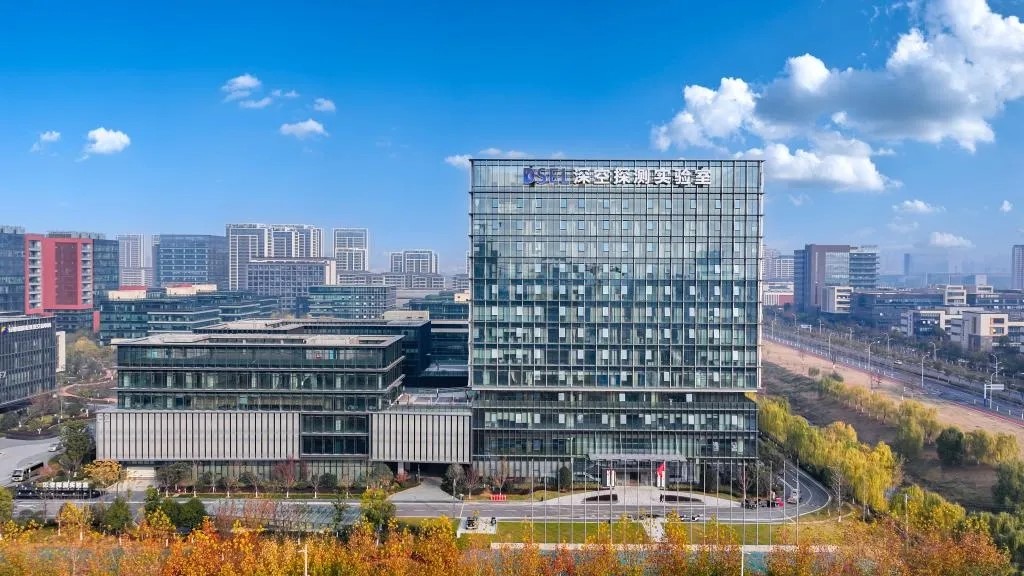Hefei high-tech zone's deep space lab pioneers lunar base tech
Updated: 2025-08-26
|China.org.cn
In 2022, the Deep Space Exploration Laboratory (DSEL) was jointly established by the China National Space Administration, Anhui province, and the University of Science and Technology of China, with its headquarters in the Hefei National High-tech Industry Development Zone. Over the past three years, DSEL has grown from concept to reality, achieving a series of futuristic breakthroughs that mark significant milestones in humanity's exploration of the cosmos.

The Deep Space Exploration Laboratory in the Hefei National High-tech Industry Development Zone. [Photo/WeChat account: hefeigaoxinfabu]
How can in-situ lunar resources be harnessed to build research stations? DSEL scientists have proposed a solution: A "lunar regolith 3D printing system" that uses concentrated solar energy to melt moon soil into bricks, essentially turning lunar soil into building materials for habitats. The lab has also developed China's first multi-needle thermal extraction prototype for harvesting water ice from lunar soil. These innovations promise to support major projects such as the International Lunar Research Station.
Over the past three years, DSEL's team has advanced from institutional setup and platform construction to mission support and technological breakthroughs. Each achievement reflects their steadfast commitment to pushing the boundaries of deep space exploration.
Anhui province, home to DSEL, recently attracted over 10 billion yuan (US$1.4 billion) in commercial space investments. The lab has mapped out 10 key future industries, including deep space energy, interplanetary internet, and space tourism, attracting companies such as Aerospace Legione Technology and Haosheng Group to the Hefei National High-tech Industry Development Zone. An integrated R&D-production-application aerospace chain is rapidly taking shape.
Space exploration is no solo endeavor but a global effort. As China ventures deeper into space, it actively engages in international collaboration. The country shared 1.5 grams of lunar samples with both France and Russia, collected by the 2020 Chang'e-5 mission from Statio Tianchuan. To date, scientists from Australia, Russia, France, the U.K., and Sweden have participated in the research of these samples.
DSEL's international partnerships not only accelerate technological advancement and commercialization but also foster mutual trust and inclusive development in space exploration. These efforts are expanding human knowledge, reshaping lifestyles, and laying the groundwork for a sustainable future beyond Earth.
